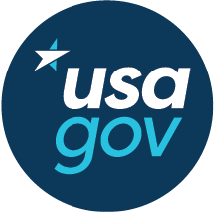The 988 Lifeline and other mental health services
Mental health continues to pose a challenge to millions of people. In 2020 alone, the U.S. had one death by suicide about every 11 minutes—and for people aged 10-34 years, suicide is a leading cause of death.
Mental health challenges can affect anyone. People who suffered trauma may face a higher risk. For example, military service members and veterans face higher rates of suicide than the general population. Understand the options you have to face your mental health struggles and get the support you need.
Call the new 988 Lifeline
The “988” Suicide and Crisis Lifeline officially launched in 2022, giving anyone with a phone in the United States immediate access to mental health resources.
Like “911,” the new “988” provides an easy-to-remember three-digit number that people can call during an emergency. The number connects you with the 988 Suicide and Crisis Lifeline, formerly known as the National Suicide Prevention Lifeline. There, the caller will get immediate help from one of more than 200 crisis centers.
If your situation is life-threatening, get immediate emergency assistance by calling 911, available 24 hours a day. If you or someone you know is suicidal or in emotional distress, contact the 988 Suicide & Crisis Lifeline immediately. Trained crisis workers are available to talk 24 hours a day, 7 days a week.
Help yourself and the ones you love
Those who need help for themselves or a loved one should know the government provides many resources in addition to 988.
SAMHSA.gov's Mental Health page provides information, programs, and best practices about mental health. Resources include:
- How to find a facility in your area
- Warning signs for loved ones and family members
- Tips for talking about mental health
- What recovery can look like
The Department of Veterans Affairs (VA) also shares valuable resources for those in need. The VA works with retired service members and supports the specific needs related to their military experience. This includes help for post-traumatic stress disorder and substance abuse.
The Substance Abuse and Mental Health Services Administration (SAMHSA) also helps those battling substance addiction and other health emergencies. They operate treatment centers around the U.S. and operate a national helpline. Call 1-800-662-HELP (4357) to speak directly with a counselor.
Take the time to speak with those you care about about mental health. No matter what you're going through, connect with loved ones, medical professionals, and community organizations for the help you need. You never need to feel like you have to take on the world alone.
LAST UPDATED: December 22, 2025
Have a question?
Ask a real person any government-related question for free. They will get you the answer or let you know where to find it.
